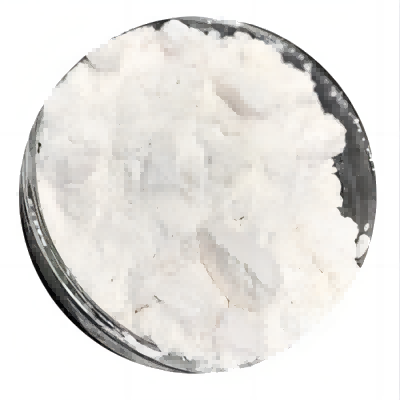Diphenylthiocarbazide CAS:622-03-7
Diphenylthiocarbazide (DPT) serves several important functions in various fields, particularly in analytical chemistry and environmental monitoring. One of the primary applications of DPT is as a reagent for detecting and quantifying heavy metals in aqueous solutions. When DPT interacts with metal ions such as mercury (Hg²⁺), lead (Pb²⁺), or copper (Cu²⁺), it forms stable colored complexes that can be quantitatively analyzed using spectrophotometry. This property makes DPT highly valuable in environmental analysis, where monitoring trace levels of heavy metals in water, soil, and biological samples is crucial for assessing pollution and ensuring compliance with environmental regulations. The sensitivity and specificity of DPT enable researchers to detect low concentrations of heavy metals, which are often harmful to both human health and ecosystems. In addition to environmental applications, DPT is utilized in various industrial processes, particularly in metallurgy and mining. The compound can be employed to analyze metal contents in ores and concentrates, helping to determine the efficiency of extraction processes and the quality of raw materials. By providing accurate determinations of metal concentrations, DPT contributes to optimizing production processes and reducing waste. Furthermore, diphenylthiocarbazide has applications in research settings, especially in studies related to coordination chemistry and complex formation. The interactions between DPT and various metal ions can provide insights into the behavior of metal-containing compounds, which can be useful in developing new materials or catalysts with specific properties. In educational laboratories, DPT is often used as a teaching tool for demonstrating redox reactions and complex formation. Students learn about the principles of qualitative analysis and the importance of reagents in chemical testing, enhancing their understanding of fundamental concepts in chemistry. Despite its extensive utility, handling diphenylthiocarbazide requires caution due to its potential toxicity. Safety protocols should be strictly followed to avoid exposure risks. Overall, diphenylthiocarbazide is a crucial reagent in analytical chemistry, significantly contributing to environmental monitoring, industrial processes, and educational endeavors.



| Composition | C13H12N2S |
| Assay | 99% |
| Appearance | white powder |
| CAS No. | 622-03-7 |
| Packing | Small and bulk |
| Shelf Life | 2 years |
| Storage | Store in cool and dry area |
| Certification | ISO. |









